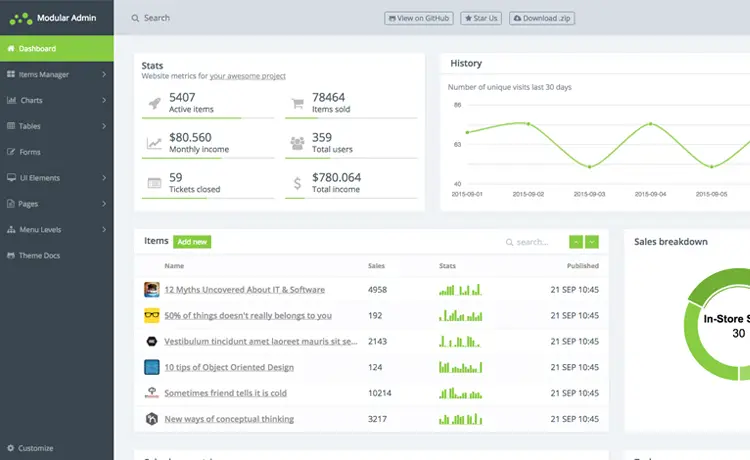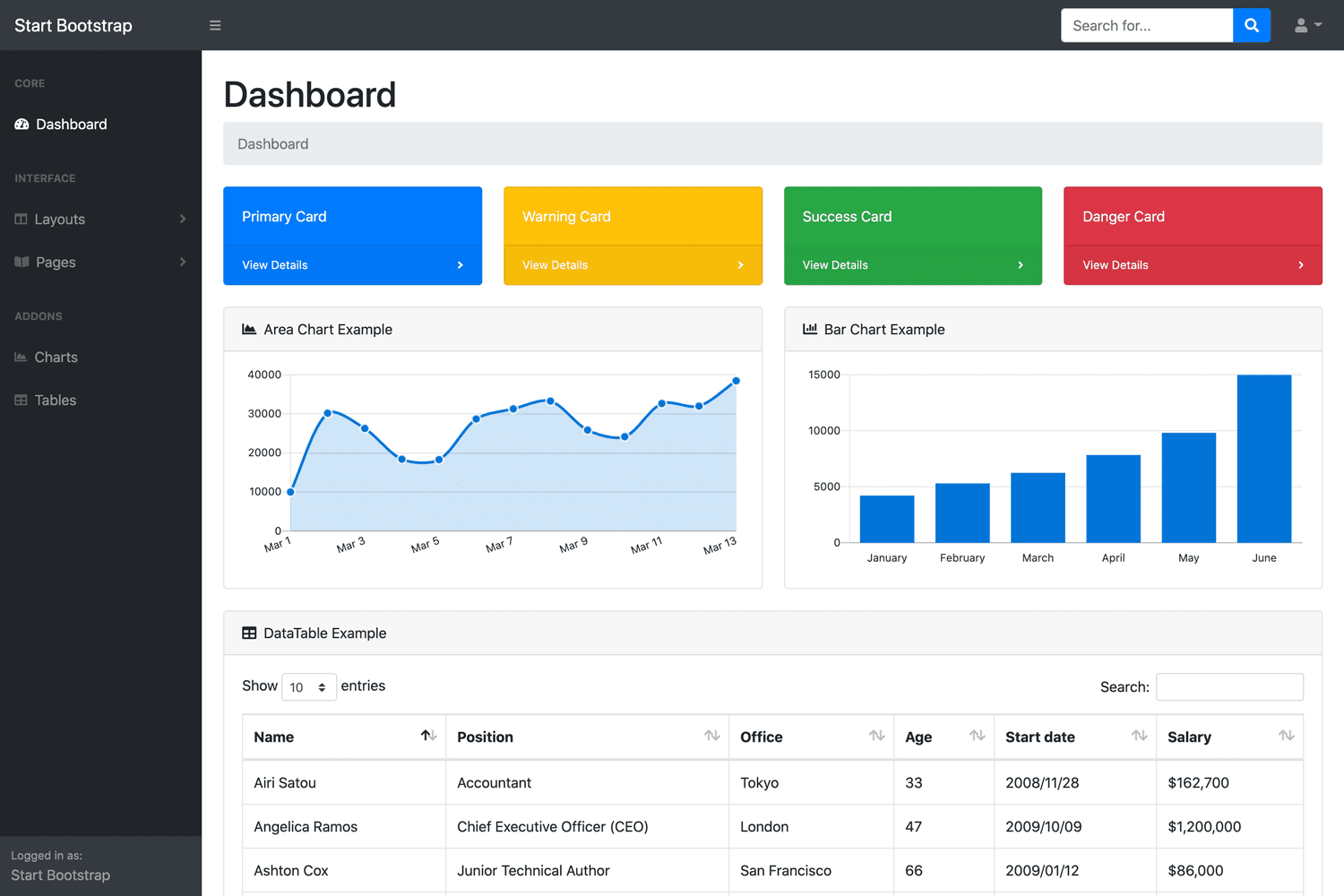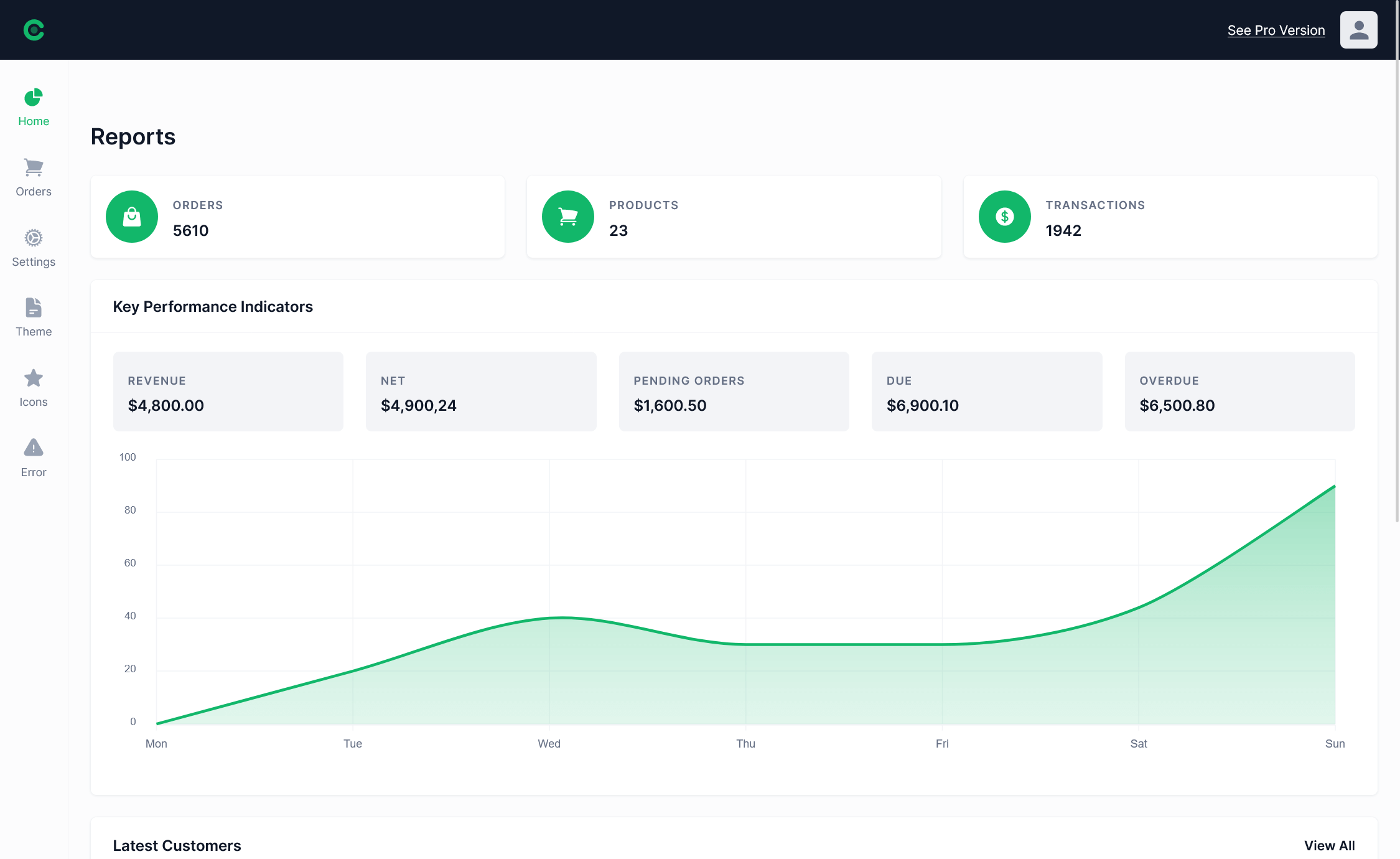Best Practices to Improve ASP.NET Core Performance
By Tan Lee Published on Mar 08, 2020 451
Why ASP.NET Core is the best?
ASP.NET Core, backed by Microsoft, combines the benefits of ASP.NET and MVC.NET into a unified programming framework.
Here are some reasons why ASP.NET is considered one of the best technologies today:
- Asynchronous programming: Improves speed and efficiency by eliminating waiting times for web service calls, database queries, and I/O operations.
- Scalability and security: ASP.NET Core is known for its excellent security, making it a popular choice for enterprises. It offers features like HTTPS enforcement, data protection, anti-CSRF protection, app secrets, CORS management, and seamless authentication and authorization.
- Hybrid app development: Supports modular development for hybrid apps across Windows and web platforms.
- Easy deployment and integration: ASP.NET Core is portable and lightweight, offering flexibility to work with various libraries, tools, and programming languages. This makes it easier for developers to integrate third-party libraries and efficiently develop, deploy, and maintain applications.
- Open-source: ASP.NET Core is free, reducing development costs, and fostering a strong developer community.
- Cross-platform: Compatible with Mac, Windows, and Linux, making it a versatile and secure choice for developers.
Top Practices for Efficient ASP.NET Core Development
1. Use the Latest Version
Each version of .NET Core introduces new upgrades, features, and improved performance. For example, .NET Core 2.1 added a JIT compiler and support for compiled regular expressions, while 2.2 introduced HTTP/2 support. ASP.NET Core 3.0 brought faster memory reading and assembly unloads, and ASP.NET Core 5 added features like Text.JSON and C#9 record type support.
The latest version, .NET 6, released in November 2021, offers simplified processing, optimized performance, hot reloading, and better integration with Visual Studio 2022. Developers are encouraged to use the latest ASP.NET Core version for enhanced performance.
2. Avoid Blocking Calls
To optimize ASP.NET Core applications, design them to execute multiple processes concurrently using an Asynchronous API.
Avoid blocking asynchronous execution with Task.Wait or Task.Result, as they can delay tasks. Instead, make key code paths asynchronous and handle data access, I/O, and long-running operations asynchronously.
Using profilers like PerfView can help identify frequently added threads to the thread pool. For managing technical complexities, businesses can rely on experienced development teams for building or customizing applications.
3. Use Cache
To improve application performance, reduce the number of requests sent to the server by using caching. Caching stores server responses, so subsequent requests for similar data are retrieved from the cache rather than the server.
This reduces server calls and boosts performance. ASP.NET Core offers various caching options, including In-Memory, Response, and Distributed caching. Implementing caching, whether client-side, server-side, or both, enhances efficiency and overall performance.
4. Optimize Data Access
To improve application performance, optimize data access by reducing the number of HTTP calls, minimizing network round trips. Fetch data in fewer calls, and set a cache for unchanged data. Avoid pre-fetching unnecessary data, as it adds load to the response and slows down the application.
5. Optimize Custom Code
Optimizing code and business logic enhances application performance. Key strategies include optimizing custom logging, authentication, and handlers that run on every request. Avoid long-running tasks in the logic layer or middleware to prevent blocking requests. Instead, execute these tasks asynchronously to avoid affecting other operations. Use technologies like SignalR for efficient real-time, asynchronous client-server communication.
6. Use Response Caching Middleware
To improve performance, use Middleware components that optimize frequently-called code paths and cache responses. The Microsoft.AspNetCore.ResponseCaching package enables this. In Startup.ConfigureServices, add the Response Caching Middleware with services.AddResponseCaching().
public void ConfigureServices(IServiceCollection services)
{
services.AddResponseCaching();
services.AddRazorPages();
}Additionally, use performance profiling tools like PerfView to identify hot code paths for further optimization.
7. Minimize Large Object Allocations
ASP.NET Core's garbage collector automatically manages memory by releasing unreferenced objects and reducing CPU usage. However, developers should avoid allocating unnecessary objects in hot code paths, as garbage collection is costly and can delay app execution.
To optimize performance, cache large objects, use ArrayPool<T> for large arrays, and avoid allocating large objects in performance-critical code.
8. Use JSON Serialization
ASP.NET Core 6.0 uses System.Text.Json for efficient JSON serialization and deserialization, enabling asynchronous reading and writing without blocking other processes. This approach offers better performance than Newtonsoft.Json, with high performance, low allocation, and compliance capabilities.
By serializing using a UTF-8 array instead of string-based methods, execution speed improves by 5-10%. The JsonSerializer.SerializeToUtf8Bytes method should be used for serialization.
9. Use Response Compression
Compressing file sizes enhances performance, and in ASP.NET Core, response compression is available as a middleware component. It reduces the size of responses like CSS, JavaScript, HTML, XML, and JSON. However, avoid compressing already compressed assets, like PNG files, and don't compress files smaller than 150-1000 bytes.
10. Minimize Exceptions
Throwing and catching exceptions is slower than other code patterns, so they should be used sparingly and not for regular program flow. Instead, add logic to handle conditions that might cause exceptions, reserving them for unexpected situations. Use app diagnostic tools like Application Insights to identify common exceptions and assess their impact on performance.
To improve ASP.NET Core application performance, consider the following:
- Backend Optimization: Use
ReadFormAsyncoverRequest.Form, avoid storingHttpContextin fields, and refrain from accessing it across threads. Do not modify status codes or headers after the response body has started. - Client-Side Improvements:
- Bundling and Minification: Minify and bundle JS/CSS files to load them faster.
- Load JavaScript Last: Ensure faster page rendering by loading JavaScript after DOM elements are present.
- Shrink Images: Compress large images to speed up loading times.
- Use CDN: Utilize CDN-hosted libraries for faster loading and reduced server load.
By implementing these tips, developers can enhance the performance of their ASP.NET Core applications.
- Implement security headers for an ASP.NET Core
- How to add security headers to an ASP.NET Core Application
- How to Initialize TagHelpers in ASP.NET Core with Shared Data
- Boost Your ASP.NET Core Website Performance with .NET Profiler
- The name 'Session' does not exist in the current context
- Implementing Two-Factor Authentication with Google Authenticator in ASP.NET Core
- How to securely reverse-proxy ASP.NET Core
- How to Retrieve Client IP in ASP.NET Core Behind a Reverse Proxy





